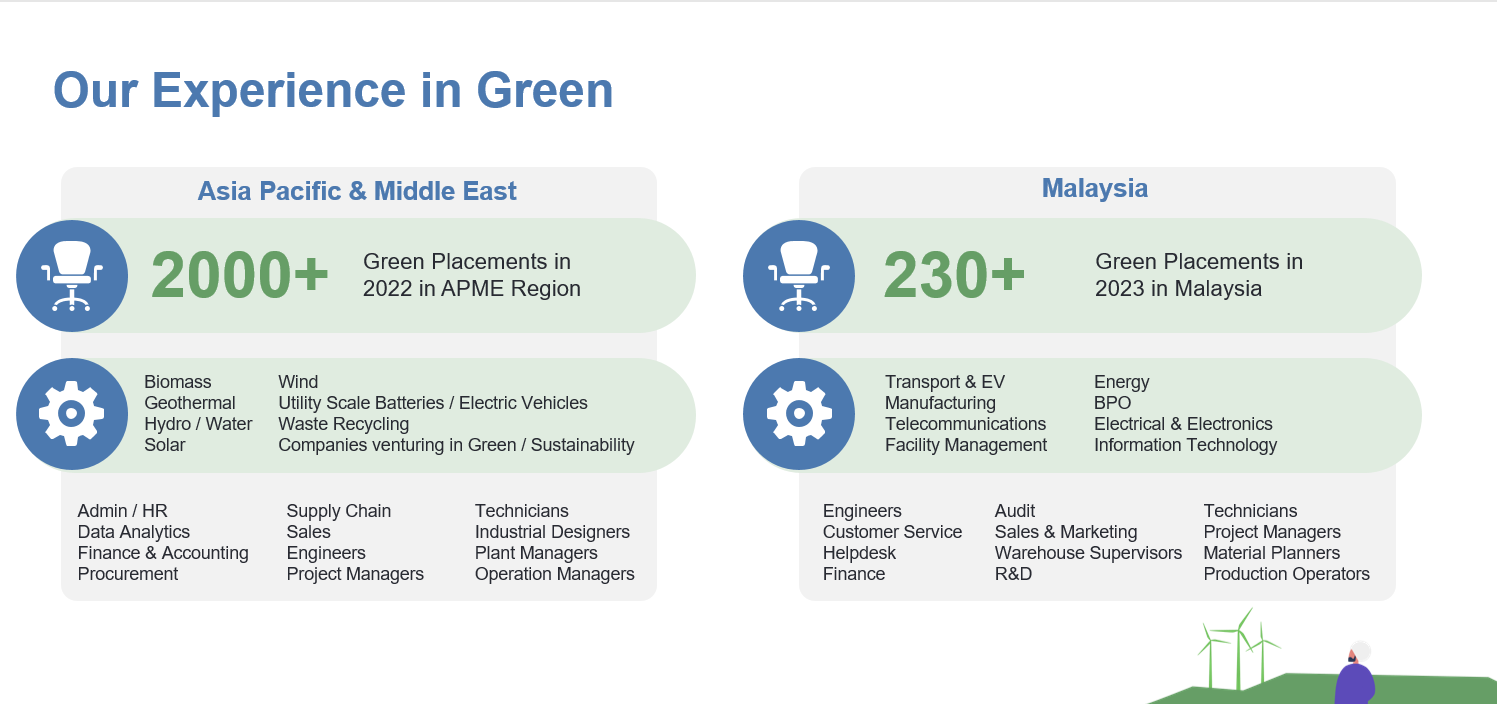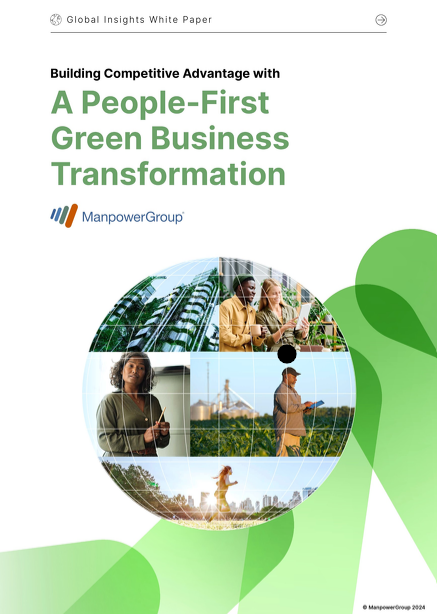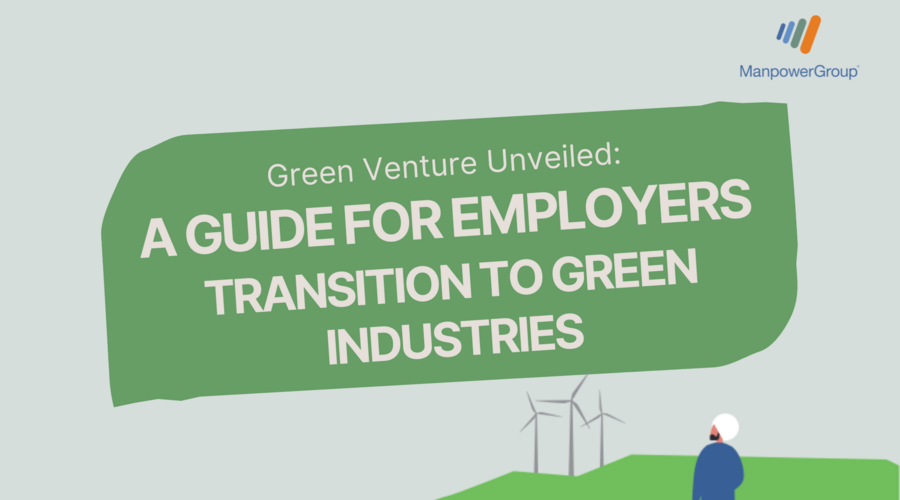Green Venture Unveiled: A Guide for Employer Transition to Green Industries
As the global transition to a greener economy evolves, sustainability goals alone are no longer enough. Growing demand for action to address climate change from consumers, investors, and government policymakers will accelerate the need for green business transformation. As a result, opportunities for a larger portion of the workforce to participate in the global green economy will grow.
According to IEA analysis, by 2030, the green transition is expected to create up to 30 million new jobs. The market is changing because of climate change. Demand for Green Talent and Green Skills Outpacing Supply. The World Economic Forum expects global green business transformation to become the largest driver of job creation in the coming years
Across industries, green skills are in short supply. 75% of employers around the world say they are struggling to find skilled talent. For employers seeking skilled green talent specifically, they say their greatest challenges are finding qualified workers (44%), creating relevant upskilling programs (39%), and identifying applicable existing skills (36%). Based on the LinkedIn Global Green Skills Report, today, only 1 in 8 workers has more than one green skill. Some worker are unaware that their current skills could be valuable in the emerging growth industries. Particularly in highly specialized areas like automotive and renewable energy, there is a severe shortage of green talents. The number of roles and skills needed in this industry will continue to grow, as global battery production scales up to meet growing demand.

Bring workers along for the green transition
Along with the implementation of generative AI, the transition to green will be the next great labour market revolution. From finance to manufacturing, roles will be transformed. As employers, we need to continue to bring people along during times of momentous change–showing workers what the future will look like, guiding them to upskill and reskill, and ensuring green jobs are attractive to all generations and collars.

Now Green is the New Blue where employers around the world and across industries are the most interested in recruiting for green roles/skills within skilled technical functions such as Manufacturing & Production (36%) and Operations & Logistics (31%). But they are also seeking green skills for roles within IT & Data (30%), Sales & Marketing (27%), Engineering (26%), Administration & Office Support (25%), and Human Resources (25%) as per our ManpowerGroup Outlook Survey.
Know the recruiting challenge
In our recent ManpowerGroup Outlook Survey, most employers (70%) said they are currently or actively planning to recruit green talent. When asked specifically, about the challenges of recruiting for green jobs and skills, employers report consistent hurdles across the talent acquisition process. Employers need to fully optimize their strategic workforce planning to attract, hire, and retain workers amid persistent talent scarcity and growing green jobs demand. Global upskilling and reskilling efforts must be scaled up to close green skills gaps. Deploying ESG best practices (e.g., diversity & inclusion) can help you improve your Employer Value Proposition and reach underutilized sources of talent. Workers around the world, particularly Gen Z, view sustainable employers more favorably.
How ManpowerGroup can assist

Malaysia Green Client Success Stories
The client has ambitious targets of becoming Net-Zero greenhouse gas emission by 2030 and has the biggest repair operations facility in Malaysia. They faced challenges in having a sustainable talent pipeline for their radio telecom repair unit and technicians, Engineers, and support staff required to oversee reducing scrap units and prolonging product life. They process on average 6,000 telecom0related units per month while, a total workforce size of over 300 resources including engineers and technicians
So ManpowerGroup conducted path finder sessions with the client by providing the client with market insights on talent availability. We leveraged on existing MPG academy database and referrals and implemented rigorous screening techniques to identify quality talent We provided profiles for Mechanical, Mechatronic, Robotic, and E&E specialists and coordinated physical & online interviews with the client
Conclusion
Since skilled human talent will become more scarce in the most developed nations due to an aging population, today's green business transformation is crucial. This suggests that to increase their organization's environmental efficiency, leaders must not only innovate but also practice the same considering how best they could use their human resources. In the future green economy, companies that can completely optimize their hiring, training, retention, and deployment processes will be at the forefront.
Work doesn’t need to happen in the corporate building for people to be productive. Hybrid is emerging as the new normal, and remote vs. in-office is balancing out. White-collar employers see productivity gains as investments in tech, data quality and employee well-being pay off. The challenge now is for leaders to see the same harmony – balancing investments in tech with quality jobs, skills development and work-life balance to attract and retain.
Learn more about our ManpowerGroup Global Insights study, which explores the impact of the green transition on the future of work for employers and workers

